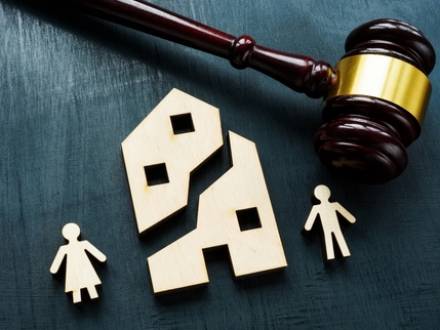Recent Blog Posts
New Law for Parents of Child Influencers in Illinois
 More and more kids are creating their own social media platforms and content channels and are gaining their own followings. These child influencers often appear in videos, pictures, or live streams and tend to include child-related topics like product and food reviews, vacation diaries, and daily life vlogs. If you are a parent of a child influencer in Illinois, there are laws you should know about that can affect you and your child. If you have questions about issues like privacy, income, and working hours for young social media stars, speak with a knowledgeable Kane County, IL family law attorney to find out more.
More and more kids are creating their own social media platforms and content channels and are gaining their own followings. These child influencers often appear in videos, pictures, or live streams and tend to include child-related topics like product and food reviews, vacation diaries, and daily life vlogs. If you are a parent of a child influencer in Illinois, there are laws you should know about that can affect you and your child. If you have questions about issues like privacy, income, and working hours for young social media stars, speak with a knowledgeable Kane County, IL family law attorney to find out more.
Laws and Regulations Related to Child Influencers
Illinois law includes several responsibilities that parents or other legal guardians of child influencers need to abide by. These include:
- Protecting privacy: Illinois has strict privacy laws to protect children. If your child is an influencer, you need to be careful about any personal information about them that is shared online. You should avoid posting your child’s address, school name, or other private details that could be misused. The Illinois Children’s Privacy Law helps protect kids’ personal information online, and it is important to follow these rules to keep your child safe.
Domestic Violence Deaths on the Rise in Illinois
 According to various reports, domestic violence deaths increased in Illinois by 110% in the year 2023. This troubling fact highlights the need for serious legal protection and support for victims. This is a real issue affecting families and communities and it needs real responses. This article will explain some legal measures that are already in place to help victims of domestic violence. If you are a victim and need legal advice, speak with a knowledgeable and compassionate St. Charles, IL family law attorney who can guide you at this difficult time.
According to various reports, domestic violence deaths increased in Illinois by 110% in the year 2023. This troubling fact highlights the need for serious legal protection and support for victims. This is a real issue affecting families and communities and it needs real responses. This article will explain some legal measures that are already in place to help victims of domestic violence. If you are a victim and need legal advice, speak with a knowledgeable and compassionate St. Charles, IL family law attorney who can guide you at this difficult time.
Restraining Orders to Combat Domestic Violence
Legal measures exist to protect victims and prevent further violence. An order of protection, commonly known as a restraining order, is one of them. This legal order can help keep abusers away and provide safety for victims by imposing physical restrictions on where they can be in relation to their victims. It can include rules like prohibiting the abuser from contacting or coming near the victim or going to the victim’s school, work, or home.
Can I Homeschool My Child After an Illinois Divorce?
 Homeschooling, once a fringe alternative to public and private schools, has become the fastest-growing form of education in the United States. At least five million K-12 children in the U.S., or 11.1 percent, are educated at home. Homeschooling has exploded since the pandemic, particularly among minorities.
Homeschooling, once a fringe alternative to public and private schools, has become the fastest-growing form of education in the United States. At least five million K-12 children in the U.S., or 11.1 percent, are educated at home. Homeschooling has exploded since the pandemic, particularly among minorities.
However, there are still plenty of parents who feel homeschooling is not the right move for their child. Home education can thus become a thorny disagreement for divorced parents who have opposing views on the subject. Ultimately, the decision will depend on how the parental responsibilities are divided, which this article will discuss. Consult an Illinois child custody attorney if you have disagreements with your ex-spouse that may affect your child.
What Are Parental Responsibilities?
There are two components to child custody. There is physical custody, which Illinois law calls parenting time, and there is legal custody, which Illinois law calls parental responsibilities. Parental responsibilities refer to a parent’s obligation to make major decisions for the child, namely in the following three areas:
What Behaviors Are Normal for a Child After Divorce?
 Going through a divorce and adjusting to life afterward is usually challenging for both spouses. While you may seek support for yourself, it is important to remember that the divorce process can have even more difficult effects on your minor children. A child’s emotional confusion and turmoil is often expressed through changes in behavior.
Going through a divorce and adjusting to life afterward is usually challenging for both spouses. While you may seek support for yourself, it is important to remember that the divorce process can have even more difficult effects on your minor children. A child’s emotional confusion and turmoil is often expressed through changes in behavior.
Understanding the underlying causes of these behavioral issues can help you address them more effectively. Co-parents need to be consistent to increase their chances of successfully dealing with and eliminating their child’s unhealthy behaviors. The right Kane County, IL child custody lawyer can help you draft a comprehensive parenting plan that establishes parental responsibilities and clear communication methods for parents to discuss issues involving your child.
Why Do Children’s Behaviors Sometimes Change During Divorce?
Children have specific needs, and divorce often disrupts their lives. Some of these needs change as children grow, so a child’s age is an important factor in behavioral changes. Many children are unable to process the confusion, stress, and emotional turmoil that often accompanies divorce. When internal processing is not possible, children may express their feelings through changes in behavior, such as:
Pros and Cons of Collaborative Divorce in Illinois
 When people think of the divorce process, they often imagine arguing their case before a judge. This is called litigation, and it is considered a traditional way to dissolve a marriage. It is also, however, considered a last resort. A court battle between two divorcing parties can be extremely costly and time-consuming, which may be why only five percent of divorces end up in litigation.
When people think of the divorce process, they often imagine arguing their case before a judge. This is called litigation, and it is considered a traditional way to dissolve a marriage. It is also, however, considered a last resort. A court battle between two divorcing parties can be extremely costly and time-consuming, which may be why only five percent of divorces end up in litigation.
Most divorces are settled out of court in a process called alternative dispute resolution. There are two main types of alternative dispute resolution used for divorce settlements:
-
Mediation
-
Collaborative divorce
While mediation is more common, collaborative divorce is also rising in popularity. Both are best done with the help of an Illinois divorce attorney. This article will discuss what collaborative divorce is and its pros and cons.
What Is Collaborative Divorce?
Collaborative divorce is a private divorce process in which the attorneys for each side work together to try to reach a settlement. Each lawyer may hire teams of experts as needed, professionals who are neutral parties and can assist in certain areas. For example, one of the attorneys may retain a child development expert to shed light on a child custody issue. The other might bring in a forensic accountant to find hidden marital assets.
How Does No-Fault Divorce Impact Property Division?
 Up until January 1, 2016, you needed a good reason to get divorced in Illinois. You had to show the court that either you or your spouse was at fault for causing the divorce by engaging in certain behaviors like adultery, substance abuse, alcohol abuse, mental or physical cruelty, abandonment, and more.
Up until January 1, 2016, you needed a good reason to get divorced in Illinois. You had to show the court that either you or your spouse was at fault for causing the divorce by engaging in certain behaviors like adultery, substance abuse, alcohol abuse, mental or physical cruelty, abandonment, and more.
But since 2016, Illinois has been a no-fault divorce state. This means that the law does not blame either spouse for causing the divorce, and you no longer need to show a court that one of the parties destroyed the marriage. All you need to tell a court when filing the divorce papers is that you and your spouse have "irreconcilable differences."
This change in the law not only made getting divorced easier but also affected the divorce process. In this article, we will discuss how no-fault divorce specifically impacts property division. To find out how no-fault divorce impacts other parts of the divorce procedure, contact an Illinois no-fault divorce attorney.
How Can I Get My Marriage Annulled in Illinois?
 Divorce is a complex legal process. Without the right Illinois divorce attorney, it can be utterly overwhelming. Some spouses therefore look for ways around divorce, such as other legal procedures that may allow them to avoid the headache of the divorce process. Mistakenly, some think that annulment is a simpler alternative to divorce. However, this is usually not the case.
Divorce is a complex legal process. Without the right Illinois divorce attorney, it can be utterly overwhelming. Some spouses therefore look for ways around divorce, such as other legal procedures that may allow them to avoid the headache of the divorce process. Mistakenly, some think that annulment is a simpler alternative to divorce. However, this is usually not the case.
Whereas divorce ends the marriage, an annulment makes it so that the marriage never existed. This is done in cases where the marriage is illegal or illegitimate to begin with. This article will discuss when a marriage can be annulled and the annulment process.
Can My Marriage Be Annulled?
When a court grants an annulment, it means the law considers the marriage to have been invalid from the start. A couple has valid grounds for annulment if:
3 Tips for Getting Divorced in the Digital Age
 Digital technology influences almost all aspects of our lives. People manage their finances, accomplish everyday tasks, and conduct relationships over their digital devices. Sometimes, digital technology can even end a marriage. More than one divorce has been triggered by a spouse discovering intimate messages from his or her significant other to an illicit lover.
Digital technology influences almost all aspects of our lives. People manage their finances, accomplish everyday tasks, and conduct relationships over their digital devices. Sometimes, digital technology can even end a marriage. More than one divorce has been triggered by a spouse discovering intimate messages from his or her significant other to an illicit lover.
The divorce process is also impacted by technology. In this article, we will discuss three tips for getting divorced in the digital age. It is always best to speak with an Illinois divorce attorney about how you can use technology to your benefit in a divorce.
Use Co-Parenting Apps
One of the most difficult parts of the divorce process is co-parenting. You and your ex-spouse will be required to follow a parenting plan, a set of court-approved guidelines for parenting your child after the divorce. The parenting plan will include provisions for:
4 Ways to Speed Up the Divorce Process in Illinois
 Getting divorced can be an emotionally and financially draining process. The more it drags out, the more difficult and expensive it can get. Unfortunately, many couples find themselves embroiled in hostile, drawn-out divorce proceedings. Sometimes, this is for valid reasons, like if complex assets need to be divided. Other times, however, the extra time can be avoided.
Getting divorced can be an emotionally and financially draining process. The more it drags out, the more difficult and expensive it can get. Unfortunately, many couples find themselves embroiled in hostile, drawn-out divorce proceedings. Sometimes, this is for valid reasons, like if complex assets need to be divided. Other times, however, the extra time can be avoided.
One way couples can shorten the divorce process is by hiring a competent Illinois divorce attorney. A lawyer with experience can help prevent some of the pitfalls that lengthen the divorce proceedings.
Here are four ways to speed up the divorce process.
Joint Simplified Dissolution of Marriage
In some cases, a couple can file for a joint simplified dissolution of marriage. This is a quick and simplified divorce procedure that applies only when the spouses meet certain criteria, such as:
What Happens to Student Loans in an Illinois Divorce?
 Student debt has received significant media attention in recent months due to the political debate over student loan forgiveness. More than 40 million Americans owe student debt, which is about 13 percent of the United States population. Together, they owe about $1.60 million in federal student loans, which breaks down to about $55,347 for the average American household.
Student debt has received significant media attention in recent months due to the political debate over student loan forgiveness. More than 40 million Americans owe student debt, which is about 13 percent of the United States population. Together, they owe about $1.60 million in federal student loans, which breaks down to about $55,347 for the average American household.
It is common for married people to have student loans. But what happens to those loans in a divorce? Is it divided like other debts?
To understand what happens to student debt in an Illinois divorce, it is first important to understand marital debt. Keep in mind that the best way to find out what will happen to your student loans in a divorce is to ask an Illinois debt division attorney.
What Is Marital Debt?
Financial obligations that belong to both spouses are called marital debt. For something to qualify as marital debt, it must satisfy the following criteria:











